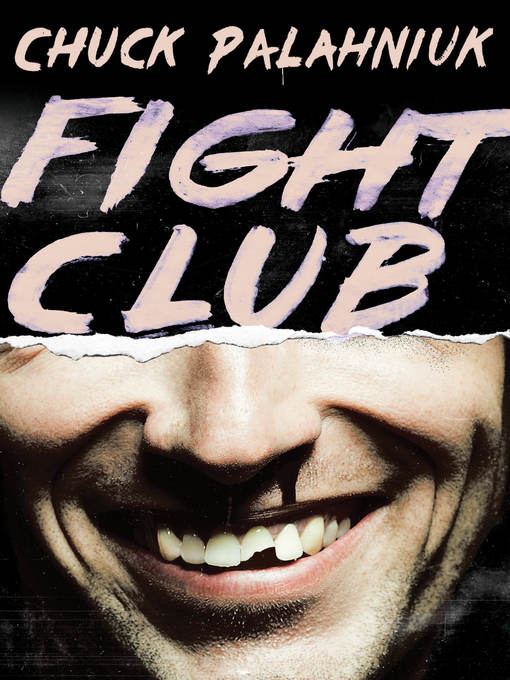
Fight Club
A Novel
کتاب های مرتبط
- اطلاعات
- نقد و بررسی
- دیدگاه کاربران
نقد و بررسی

Starred review from August 19, 1996
Featuring soap made from human fat, waiters at high-class restaurants who do unmentionable things to soup and an underground organization dedicated to inflicting a violent anarchy upon the land, Palahniuk's apocalyptic first novel is clearly not for the faint of heart. The unnamed (and extremely unreliable) narrator, who makes his living investigating accidents for a car company in order to assess their liability, is combating insomnia and a general sense of anomie by attending a steady series of support-group meetings for the grievously ill, at one of which (testicular cancer) he meets a young woman named Marla. She and the narrator get into a love triangle of sorts with Tyler Durden, a mysterious and gleefully destructive young man with whom the narrator starts a fight club, a secret society that offers young professionals the chance to beat one another to a bloody pulp. Mayhem ensues, beginning with the narrator's condo exploding and culminating with a terrorist attack on the world's tallest building. Writing in an ironic deadpan and including something to offend everyone, Palahniuk is a risky writer who takes chances galore, especially with a particularly bizarre plot twist he throws in late in the book. Caustic, outrageous, bleakly funny, violent and always unsettling, Palahniuk's utterly original creation will make even the most jaded reader sit up and take notice. Movie rights to Fox 2000.

August 25, 2008
The 2008 audio edition of Palahniuk’s ground-breaking 1996 novel provides a timely opportunity to contemplate the direction of Generation X and the wider, popular culture over the past dozen years. The white, male, 20-something angst of the story’s unnamed protagonist and his mysterious partner in crime, Tyler Durden, may now sometimes seem like slightly dated grunge rock. Also, the themes of domestic terrorism and insurrection certainly play differently in a post–September 11 world. Yet Palahniuk’s power to provoke our collective sacred cows remains undeniable. The narrative—with its delusional twists and turns—presents serious challenges on audio. James Colby cleverly plays deadpan cool through much of the early plot exposition so that the chaos that eventually takes hold becomes all the more eerie and surreal. He pulls off the convoluted climactic revelations with emotional authenticity. The listening experience may be too jarring for general audiences merely hoping for a commute diversion. However, the release offers today’s crop of young urban hipsters an opportunity to connect with the voices of a previous decade. A W.W. Norton paperback (Reviews, June 3, 1996).

July 1, 1996
In the world of Fight Club, healthy young people go to meetings of cancer support groups because only there can they find human warmth and compassion. It's a world where young men gather in the basements of bars to fight strangers "just as long as they have to." And it's a world where "nobody cared if he lived or died, and the feeling was fucking mutual." Messianic nihilist Tyler Durden is the inventor of Fight Club. Soon thousands of young men across the country are reporting to their work cubes with flattened noses, blackened eyes, and shattered teeth, looking forward to their next bare-knuckle maiming. The oracular, increasingly mysterious Durden then begins to harness the despair, alienation, and violence he sees so clearly into complete anarchy. Every generation frightens and unnerves its parents, and Palahniuk's first novel is gen X's most articulate assault yet on baby-boomer sensibilities. This is a dark and disturbing book that dials directly into youthful angst and will likely horrify the parents of teens and twentysomethings. It's also a powerful, and possibly brilliant, first novel. ((Reviewed July 1996))(Reprinted with permission of Booklist, copyright 1996, American Library Association.)

























دیدگاه کاربران